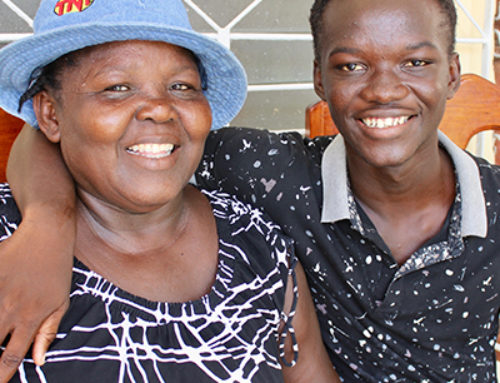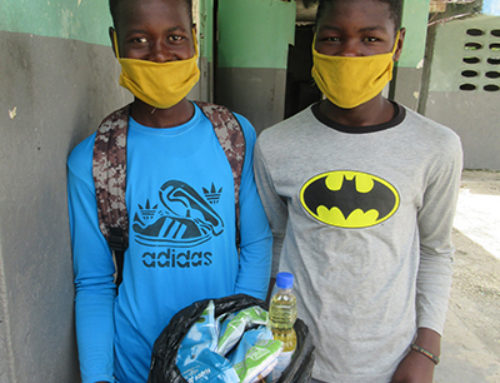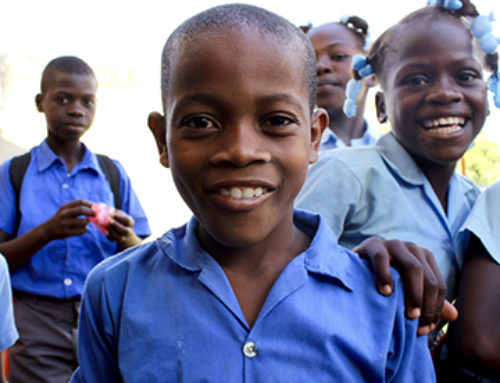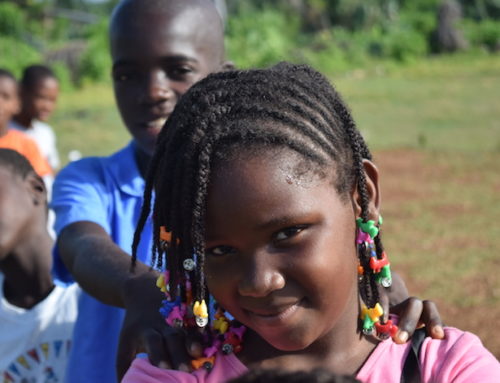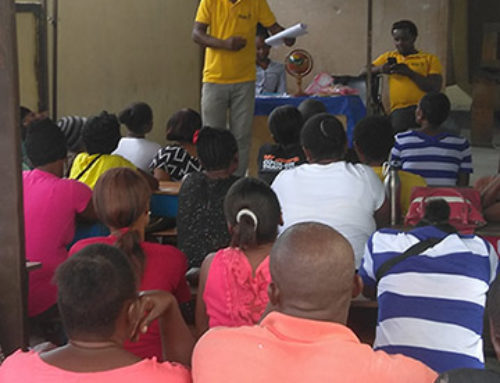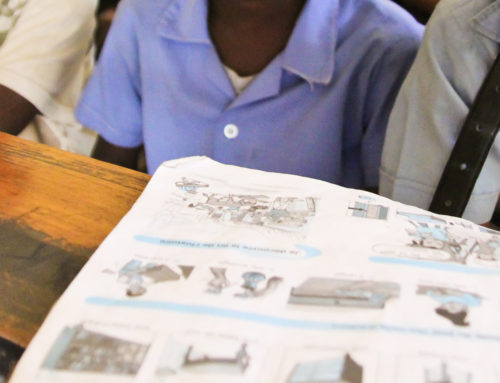By Heather Gentzel,
Communications and Child Sponsorship Coordinator
How many times have you heard a speech where the speaker began, “Webster’s dictionary defines….”?
When it comes to the word “restavek”, you won’t find a definition in Webster’s. That’s true for a couple of reasons. First of all, restavek is a foreign word, rooted in French and contextual to Haiti. And second, while the word itself literally means “to stay with,” and linguistically could simply refer to a child living with someone other than their biological family, in practice it carries a much darker and heavier meaning. Those who have encountered children living in restavek know this very well. That’s why we decided to ask our team of Child Advocates, all Haitians working in the trenches with children caught in the restavek system, to share their definitions of restavek.
“Restavek: this is a child who is abused, who carries out household work, unpaid, in a house other than that of their biological parents’ and lives permanently in this house.”
-Robenson Saint-Hilaire, Child Advocate
Right away, Robenson points out one of the primary aspects of restavek. What defines and distinguishes this practice is the way in which the child is treated. As we share other Haitians’ definitions of restavek, notice how they describe the treatment towards the child:
“A restavek is a child whose parents are unable to take good care of them, and therefore is sent to live with someone else, hoping things and life will be different. But most of the time, the opposite occurs. This child ends up being mistreated physically, psychologically, verbally, sexually sometimes and so on…”
-Osbert Victor, Child Advocate
As Osbert shares, there is no limit to the kind of abuse a child in restavek may suffer. Nadine emphasizes this as well:
“A restavek is an abused child in a family who is not his or her biological family. This child was given to a host family in the hope of a better life, such as receiving education, food and housing in exchange for doing chores. However, because the child is vulnerable (considering the state of their biological family), the host family does not meet any of this child’s basic rights. …Restavek is a modern kind of slavery where none of the fundamental rights of the International Convention are applied to the child’s lifestyle, which is not appropriate for this child’s biological, emotional and social development.”
-Nadine Augustin Paul, Child Advocate
Nadine not only mentions the maltreatment a child in restavek receives, but also points out their lack of rights. With no biological family close by to come to their rescue, and virtually no accountability from other adults, they are vulnerable. Samuel explains:
“Restavek (a Haitian creole word which is from two French words: “rester” and “avec”) refers to a child who has moved from his or her biological family to stay with a host family and serves the family as a domestic child; this new social environment is characterized by the violation of his/her rights, such as: his/her rights to go to school, and rest and play and be protected from all forms of exploitation and abuse.”
-Samuel Jean Baptiste, Child Advocate
Not only are children in restavek typically mistreated, abused, and/or denied basic rights, but they are also overworked, as Marie Yolaine expounds:
“A restavek is a child or a teenager who does not live with his biological parents, but
[instead] lives with a relative or stranger. He suffers from ill-treatment, such as physical and psychological abuse, doesn’t go to school and is responsible for all the domestic work.”
-Marie Yolaine, Child AdvocateAt Restavek Freedom, we are working hard to end the restavek system in Haiti. Each of our advocates is dedicated to freeing children from a life characterized by abuse, denial of basic rights and education, and unfair child labor. They search the streets for children in restavek, then work carefully with the children and their host families to
invite them into our Child Advocacy Program, where they receive an education and a Haitian advocate to stand up for their rights and show them their worth and hope.


